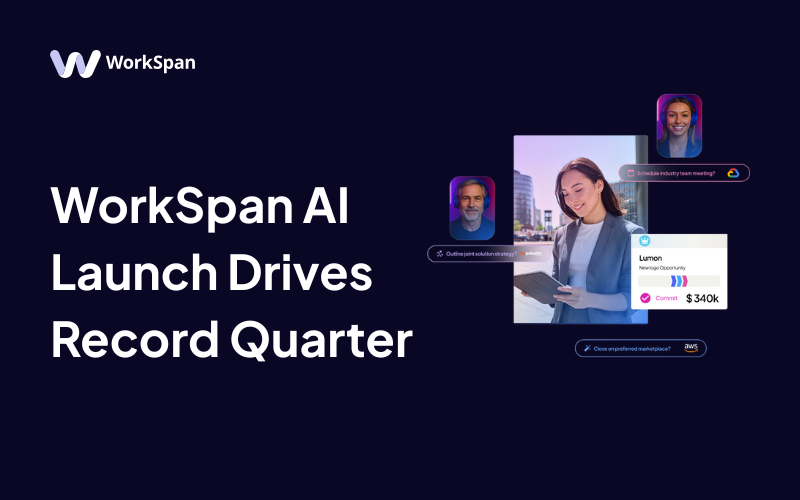
Business Ecosystems have taken B2B industries by fire. But, SaaS companies and software companies aren’t the only industries leveraging ecosystems and disrupting their markets. Nearly every market is seeing significant disruption, first by digital transformation, and now by the growth in ecosystems. According to recent research from Accenture,
More than 40 percent of companies across 20 industries—accounting for a combined enterprise value of $26 trillion—are highly susceptible to future disruption.
For those business leaders who are ready to seize on it, massive opportunities and revenue are available for the taking. Here are seven surprising industries where ecosystems are shaking up the market.
MedTech: Microsoft, and Walgreens
The business side of the medical industry has historically been slow to innovate. However, digital transformation has accelerated the pace of new technology and propelled massive growth in the medical technology (MedTech) sector. Healthcare organizations are forging exciting partnerships with technology companies to provide the solutions patients are looking for.
Recently, Microsoft and Walgreens Boots Alliance formed a strategic partnership to "develop new health care delivery models, technology and retail innovations to advance and improve the future of healthcare."
This partnership involves a multi-year investment in research and development to build new healthcare solutions, lower costs, and improve outcomes using data, AI and leveraging the expertise of healthcare professionals.
The results of this partnership could be a gamechanger for improving the quality of healthcare in the United States.
Machine Learning: SAP, and NVIDIA
Machine learning has been made possible by the huge advances in processing speed and power over the last few years. It’s enabled businesses to crunch massive amounts of data quickly and to begin to solve some of the big problems answered by that data.
In a partnership with SAP, NVIDIA has introduced machine learning to business processes. This means that machines and computers can take care of some of the most tedious and manual tasks a business has, freeing employees to work on the strategic problems that move the business forward.
For instance, machine learning can train chatbots and virtual agents to easily and naturally answer questions on a helpline or website for common issues. Agents will be free to answer more complex questions, and customers have a quick, easy experience resolving their issue. This leaves customers satisfied and reduces the strain on business resources.
Internet of Things: NexLeaf, and Tanzania
The Internet of Things (IoT) moves quickly, and IoT companies are built on finding and anticipating innovative solutions for consumers and the world’s biggest problems.
Vaccine delivery to countries with limited infrastructure has been an ongoing problem for governments and NGOs. In Tanzania, NexLeaf, a technology startup, has partnered with the government through a network of healthcare-oriented startups called Infuse to merge data analytics with the IoT to monitor thousands of connected fridges and track the temperature of vaccines for optimum viability.
Infuse allows startups the opportunity to scale while also giving NGOs and nonprofits the resources to leverage technology and innovation to solve public health problems across the globe.
Financial Technology (FinTech): SoFi, and WeWork
From insurance to investing, fintech has taken the financial sector by storm, and it’s built largely through alliances. According to McKinsey Panorama, almost 80% of financial institutions have entered into fintech partnerships.
A huge sector of the financial industry and a looming problem as well is student debt. As many new employees are entering the workforce with large amounts of student debt, this has become a top priority for lenders as well as new graduates.
Online lender SoFi partnered with WeWork to offer WeWork employees and customers exclusive discounted rates on a student loan refinance as well as career assistance and access to exclusive events. This partnership enables the two companies to mitigate the effects of student debt while providing SoFi with a built-in customer base.
Blockchain: Northern Sphere Mining Corp., and Blockchain Ready
Blockchain is best known for its role in currency, particularly BitCoin. But blockchain technology allows for security and transparency in many industries beyond that.
One of these more unexpected uses is mineral exploration. Northern Sphere Mining Corp. has entered into a strategic alliance with Blockchain Ready, Inc. to provide a blockchain platform for the mining industry. This technology will assist in regulatory assistance, material tracking, and more.
But, this blockchain platform isn’t just streamlining logistics. Through this partnership, the Northern Sphere and Blockchain Ready hope to manage and streamline their relationships with the Aboriginal community.
Cannabis: Nielsen and Headset
As cannabis use has become legal in many parts of the United States and around the world for both medical and recreational use, organizations are quickly seizing on this booming market.
Nielsen and Headset recently formed a strategic alliance to provide market insights into cannabis consumption in Canada. This will allow clients to understand the competition, leverage opportunities, and be industry trendsetters.
Since the recreational cannabis market in Canada is quickly emerging right now, organizations are looking for the most efficient way to enter the competition. This partnership gives companies the information they need to implement pricing and distribution quickly without devoting many of their own resources to this market research.
Even though digital transformation has been in full swing for several years now, industries are still at risk for disruption. Business leaders are spending energy cultivating business ecosystems and move quickly just to stay relevant.
However, huge opportunities and trillions of dollars in revenue exist for organizations that are able to find the gaps in their markets and quickly bring those solutions to market.
By looking for innovative and unexpected partnerships, agile business leaders can create an invaluable competitive edge that will keep them ahead of their markets and change the way we do business.





.jpg)

